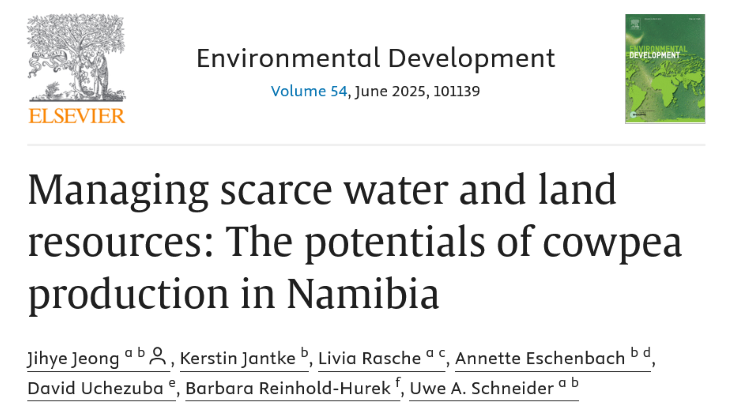Meeting Namibia's Protein Needs with Limited Cropland and Water Resources
7 February 2025

Photo: Environmental Development
A new study led by FNK's Jihye Jeong and published in Environmental Development highlights the significant potential of cowpea cultivation in Namibia as a sustainable strategy to combat food insecurity. Despite severe climatic and socio-economic challenges, Namibia's agriculture remains essential for rural livelihoods. Cowpea, a resilient legume, can thrive in arid conditions and is crucial for smallholder farmers who practice subsidence agriculture. The research integrates crop growth simulations with resource allocation optimization to assess the impacts of irrigation and inoculation on cowpea production. Findings indicate that both methods can substantially enhance yields, with inoculated cowpeas achieving up to 5.7 tons per hectare. Notably, inoculation emerges as a more efficient approach, potentially meeting the protein needs of Namibia's population using only 10% of current cropland and water resources. This study underscores the importance of innovative agricultural practices in addressing food insecurity in sub-Saharan Africa. It positions legume cultivation as a key element in achieving sustainable food production amidst resource scarcity.


